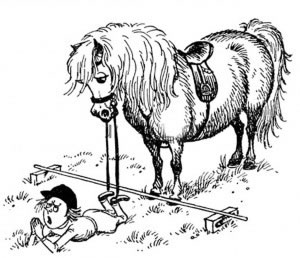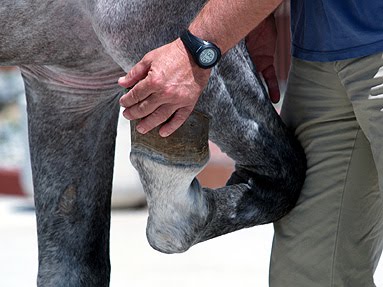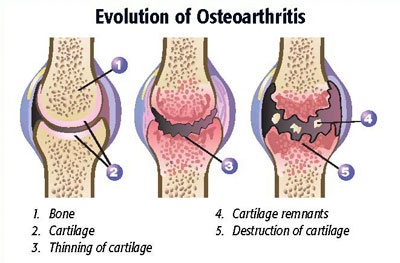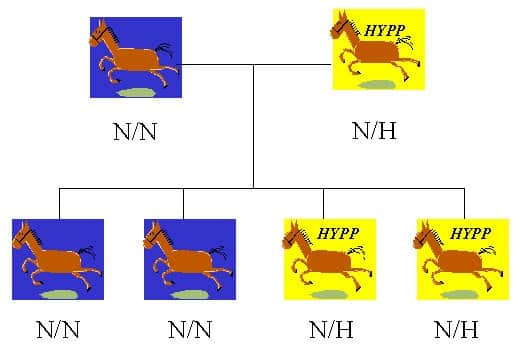No matter what product or therapy I write about, and no matter how implausible the therapy, or how sparse the evidence for its effectiveness, I almost always get a comment to the effect of, “But, it works for me!”
 I don’t think that is a point worth arguing. I mean, if you feel better after using a product or service, that’s really the only thing that matters (to you, for sure). And I get that. I’m not about to try to tell you that you’re doing the wrong thing when you give your horse a product that lacks evidence to back it up – I know you’re trying to help your horse. If you’ve tried a certain product or treatment, and it works for your horses – or even if it seems to work for your horse – the logical thing for you to do is to keep using it. I can’t imagine how or why someone would criticize you for that. In fact, if I were in your shoes, I’d probably do the same thing.
I don’t think that is a point worth arguing. I mean, if you feel better after using a product or service, that’s really the only thing that matters (to you, for sure). And I get that. I’m not about to try to tell you that you’re doing the wrong thing when you give your horse a product that lacks evidence to back it up – I know you’re trying to help your horse. If you’ve tried a certain product or treatment, and it works for your horses – or even if it seems to work for your horse – the logical thing for you to do is to keep using it. I can’t imagine how or why someone would criticize you for that. In fact, if I were in your shoes, I’d probably do the same thing.
 I think there’s a reason that we think that our experience is so important. Our brains must have been wired to notice associations. We tend to link things that occur before and after, and we tend to think of them as cause and effect. You do rain dances – it rains sometimes afterwards. One thing causes the next thing, right? Unfortunately, even though such thinking is a simplification, it has persisted, and it’s persisted because it was a simplification with some practical advantages, because associations are right sometimes. Plus, when it has been wrong it usually hasn’t been wrong often enough to created a big problem (at worst, it didn’t rain, and in modern times, you just waste money).
I think there’s a reason that we think that our experience is so important. Our brains must have been wired to notice associations. We tend to link things that occur before and after, and we tend to think of them as cause and effect. You do rain dances – it rains sometimes afterwards. One thing causes the next thing, right? Unfortunately, even though such thinking is a simplification, it has persisted, and it’s persisted because it was a simplification with some practical advantages, because associations are right sometimes. Plus, when it has been wrong it usually hasn’t been wrong often enough to created a big problem (at worst, it didn’t rain, and in modern times, you just waste money).
But as someone who gives advice to people on what they should do with their horse(s) pretty much every day, I’m obliged to dig a little deeper. “It works for me,” isn’t sufficient. I think professionals should be held to higher standards. While, for an individual, his or her own experience is plenty good enough, I look at possibilities that improvement could be due to a lot of other factors.
Doctors are expected to know what treatments work best and to hand that knowledge down to coming generations. Knowing that a treatment may have worked for just one person actually contributes very little towards those aims. For the purposes of my clients, and, at least as importantly, for the purposes of their horses, I don’t think that I should be making recommendations solely on the basis of my own personal experience or belief(s).
There are lots of reasons why therapies may seem to work, even when they don’t (CLICK HERE to read about some of them – heck, there are so many of them that I had to break the article into two parts). I think that I owe it to the horses (and their owners) to make recommendations based on the best available evidence: evidence that comes from personal experience, to be sure, but also from well-conducted scientific studies. I figure that if someone is going to trust me enough to ask for advice, I owe it to them to give the best advice possible.
 For just about any condition, there are at least hundreds of remedies out there. If you don’t believe me, enter just about any condition of the horse into a search engine, and see how many different products you can find. For example, Google® returned 2,640,000 hits on the terms “arthritis supplement horse.” Seriously, 2,640,000. Now there surely aren’t 2,640,000 products (it just seems like it), so I decided to count. The first very first chart showed a list of 22 such products, and on the first page, I was able to find lists of over 100 products, and I still have at least 2,600,010 hits to go through. Now, call me skeptical, but it seems to me that they can’t ALL work. I mean, if something worked to prevent arthritis, everyone would be using it, no horses would have arthritis, and I’d have to cross one subject entirely off my writing-about list. But, in fact, the chances that any one of them will work for a given horse are quite small (some would say, non-existent), and, since arthritis still exists (I probably saw a case yesterday, no matter what day you’re reading this), I can say with some assurance that the products don’t work, at least not all the time.
For just about any condition, there are at least hundreds of remedies out there. If you don’t believe me, enter just about any condition of the horse into a search engine, and see how many different products you can find. For example, Google® returned 2,640,000 hits on the terms “arthritis supplement horse.” Seriously, 2,640,000. Now there surely aren’t 2,640,000 products (it just seems like it), so I decided to count. The first very first chart showed a list of 22 such products, and on the first page, I was able to find lists of over 100 products, and I still have at least 2,600,010 hits to go through. Now, call me skeptical, but it seems to me that they can’t ALL work. I mean, if something worked to prevent arthritis, everyone would be using it, no horses would have arthritis, and I’d have to cross one subject entirely off my writing-about list. But, in fact, the chances that any one of them will work for a given horse are quite small (some would say, non-existent), and, since arthritis still exists (I probably saw a case yesterday, no matter what day you’re reading this), I can say with some assurance that the products don’t work, at least not all the time.
I don’t care how hard you try, you can’t try every single arthritis prevention supplement on your horse. Even if there were only 100 of them (and there are lots more), If you tried all, one at a time, for – how long, really? – 2 months at a time, that’s 200 months, or over 16 years, or about as long as many people own one horse. Maybe you feed them all at the same time? No, that wouldn’t work, because then you’d be trying to get your horse to eat a bit more than three pounds of arthritis supplement a day (at 2 ounces a day x 100 supplements), and you still wouldn’t know which one would work. I give up. Unless you have some method of testing them – science – there’s no logical basis to choose one of them over another.
 BY THE WAY: Since there’s not logical basis to choose, I think that’s also why discussions on various products and services that lack scientific evidence can often get a bit illogical.
BY THE WAY: Since there’s not logical basis to choose, I think that’s also why discussions on various products and services that lack scientific evidence can often get a bit illogical.
Look, I get that waiting for sold results can be frustrating. Among its other features, science is tidy, rigorous, and cautious. Science wants to know exactly what is going on when someone says a treatment “works”. (CLICK HERE to read my article “What Works.”) It has found that question to be much more complex than anyone thought. As much as I wish it were otherwise (really, I do – things would be so much easier), the only way to be truly sure it is the remedy itself that relieves your horse’s symptoms is to set up a proper scientific trial where you have no way of knowing whether your horse is getting the remedy or a placebo. If the remedy really works, you can tell based on the results of the tests. But when your horse has a problem, caution is usually not the first thing on your mind.
So, when I write an article about glucosamine and chondroitin sulfate (CLICK HERE to read it), and I point out that…
- There’s no biological reason that it should work, and,
- There are lots of biological reasons that it shouldn’t work, and,
- No one has ever established what a proper dose is supposed to be, and,
- It’s been shown, in both human and horse studies, that the products may not contain what they claim, and,
- The best scientific studies (mostly in humans, but mammalian joints are pretty much alike) show no effect
And you respond, “But it works for me…”
I’m OK with that. Because at the end of the day, you care about your horse, and I care about your horse (which is why I write this stuff), and all we both want is for him to be better (from whatever problem he might have). But I still think it’s important to know if something really works.
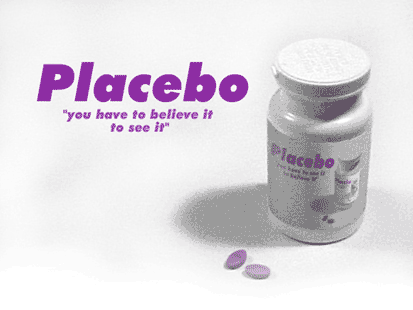 There was a fascinating study about the “It Works For Me” phenomenon, just published in 2013. In it, 32 horses with headshaking were studied. Owners were asked to determine if a supplement for head shaking worked. But they didn’t know if their horses were really getting the supplement, or if they were getting a placebo. Guess what they found.
There was a fascinating study about the “It Works For Me” phenomenon, just published in 2013. In it, 32 horses with headshaking were studied. Owners were asked to determine if a supplement for head shaking worked. But they didn’t know if their horses were really getting the supplement, or if they were getting a placebo. Guess what they found.
EVERYONE who was giving their horse something thought that what they were giving their horse helped. Didn’t matter if if was the supplement or the placebo, owners thought it was doing some good. But, in fact, nothing did any good (they recorded the horses’ behaviors, and had independent evaluators tell if there were any before-and-after differences). You can CLICK HERE to see an abstract of the study.
 Look, when you think something “works,” medicine people really do notice. Good stories are often the start of good investigations. But there are so many claims that things “work” (READ: “internet”) that we’re now running the risk that useful information may be swamped by a tidal wave of testimonials.
Look, when you think something “works,” medicine people really do notice. Good stories are often the start of good investigations. But there are so many claims that things “work” (READ: “internet”) that we’re now running the risk that useful information may be swamped by a tidal wave of testimonials.
So, as you poke around my website, you’ll see a consistent theme – I think that good evidence is important, when it comes to choosing therapies. I think we owe horses a good likelihood that something we’re giving them or doing to them actually does something. So, I’ll just keep pointing out the facts, and I’ll be thrilled if, by reading them, you’ll think about what you’re doing for your horse a little bit more. I’m not trying to sell you anything, and, honestly, I think it’s great that you’re doing just about whatever you’re doing in trying to help your horse. But remember that what we think might be so isn’t always so, and we’ve moved forward a lot in the past few decades due simply to trying to see if what “works” for one person and that person’s horse really works for everybody. In general, I think that’s a very important question to answer.

